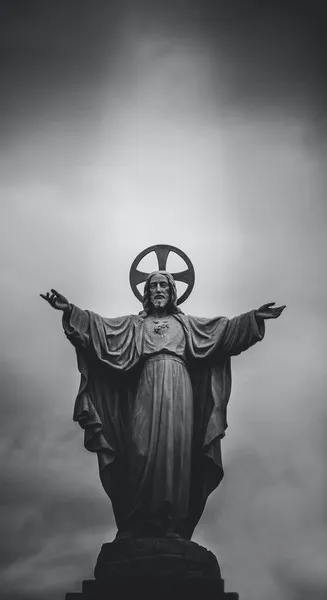Table of Contents
- Defining Theodicy
- Theodicy and Social Structure
- Coping Mechanisms and Theodicy
- Theodicy and Social Change
- Theodicy in Contemporary Society
- Conclusion
The problem of theodicy is a central issue in the sociology of religion, challenging believers and scholars alike to reconcile the existence of evil and suffering with the notion of a benevolent and omnipotent deity. This dilemma has profound implications for understanding faith, morality, and social structures within religious communities. By examining the sociological aspects of theodicy, we gain insights into how societies construct and maintain religious beliefs in the face of adversity. This article explores the various dimensions of theodicy, its impact on social cohesion, and the strategies employed by religious groups to address this enduring problem.
Defining Theodicy
The term “theodicy” originates from the Greek words “theos” (god) and “dike” (justice), and it refers to the justification of God’s goodness and omnipotence in light of the existence of evil. Theodicy grapples with questions about why a loving and powerful deity would permit suffering and injustice in the world. This problem is not merely a theological concern but also a sociological one, as it influences how religious communities interpret their experiences and maintain their faith.
Historical Perspectives on Theodicy
Throughout history, various religious traditions have offered explanations for the presence of evil and suffering. In Christianity, for example, the concept of original sin explains human suffering as a consequence of Adam and Eve’s disobedience. In Hinduism, the law of karma suggests that suffering results from one’s actions in previous lives. These explanations serve not only to address theological concerns but also to provide a framework for understanding individual and collective experiences within a religious context.
Theodicy and Social Function
From a sociological perspective, theodicy performs several essential functions within religious communities. Firstly, it offers a means of coping with suffering by providing a sense of purpose or higher meaning. Believers may find solace in the idea that their suffering has a divine purpose or that it will be compensated in the afterlife. Secondly, theodicy helps to maintain social cohesion by reinforcing shared beliefs and values. When communities collectively interpret suffering through a theodical lens, they strengthen their bonds and support one another in times of crisis.
Theodicy and Social Structure
The problem of theodicy also intersects with issues of power and social structure. Different social groups may interpret and experience suffering in varied ways, influenced by their socio-economic status, gender, ethnicity, and other factors. These differences can lead to distinct theodical responses and religious practices.
Class and Theodicy
Socio-economic status plays a significant role in shaping individuals’ responses to theodicy. Those in lower socio-economic classes may be more likely to adopt fatalistic or otherworldly explanations for their suffering, viewing it as a test of faith or a temporary condition that will be rectified in the afterlife. In contrast, individuals from higher socio-economic classes might interpret suffering as a challenge to be overcome through hard work and moral righteousness. These differing perspectives highlight how theodicy is intertwined with broader social inequalities.
Gender and Theodicy
Gender also influences how theodicy is experienced and articulated. In many religious traditions, women are often more involved in ritual practices and community support roles, which can affect their interpretations of suffering. Women may emphasize themes of sacrifice, nurturing, and resilience in their theodical narratives. Men, on the other hand, might focus on themes of strength, protection, and moral leadership. These gendered differences in theodical interpretations reflect broader societal norms and expectations regarding gender roles.
Ethnicity and Theodicy
Ethnicity further complicates the theodical landscape. Different ethnic groups within the same religious tradition may have unique historical and cultural experiences that shape their interpretations of suffering. For instance, African American Christians often draw on a collective history of oppression and resilience, interpreting suffering through the lens of liberation theology. This perspective emphasizes the redemptive power of suffering and the importance of social justice, highlighting how ethnicity intersects with religious belief systems to produce distinctive theodical responses.
Coping Mechanisms and Theodicy
Religious communities employ various coping mechanisms to address the problem of theodicy. These mechanisms can be categorized into cognitive, emotional, and social strategies, each serving to mitigate the distress caused by suffering and to uphold religious beliefs.
Cognitive Strategies
Cognitive strategies involve reinterpreting or reframing suffering in a way that aligns with religious beliefs. This can include viewing suffering as a test of faith, a means of spiritual growth, or a result of human free will. By cognitively reframing suffering, believers can maintain their faith and find meaning in their experiences. This cognitive reappraisal helps to reduce the cognitive dissonance that arises when confronting theodical dilemmas.
Emotional Strategies
Emotional strategies focus on managing the emotional distress associated with suffering. Prayer, meditation, and other spiritual practices can provide comfort and solace, helping individuals to cope with their pain. Religious rituals and ceremonies also play a crucial role in providing emotional support, allowing individuals to express their grief, seek communal support, and find emotional healing.
Social Strategies
Social strategies involve leveraging the support of the religious community to cope with suffering. Religious groups often provide practical assistance, such as financial aid, counseling, and social services, to members in need. They also offer a sense of belonging and solidarity, reinforcing social bonds and collective resilience. By fostering a supportive community, religious groups can help individuals navigate the challenges posed by theodicy.
Theodicy and Social Change
The problem of theodicy can also drive social change within religious communities. When traditional theodical explanations fail to address contemporary issues, religious groups may adapt their beliefs and practices to better align with modern values and experiences.
Progressive Theodicies
Get the full article AD FREE. Join now for full access to all premium articles.
View Plans & Subscribe Already a member? Log in.





